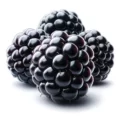When it comes to health-boosting superheroes in the world of fruits, the raspberry stands tall despite its diminutive size. These vibrant and juicy berries are not only a treat for the taste buds but also a powerhouse of essential nutrients that can significantly enhance your well-being. Let’s delve into why raspberries are more than just a delicious snack—they’re a key player in promoting excellent health for individuals across various age groups.
Nutritional Content of Raspberries
Raspberries boast an impressive array of vitamins, minerals, and phytonutrients essential for optimal health. These include:
- Vitamins: Raspberries are rich in vitamin C, providing over half of the daily recommended intake in just one cup. Vitamin C is crucial for supporting the immune system, promoting collagen production for healthy skin, and acting as a potent antioxidant to combat oxidative stress.
- Minerals: These berries contain minerals such as manganese, which is vital for bone health and metabolism, as well as potassium, which helps regulate blood pressure and maintain heart function.
- Phytonutrients: Raspberries owe their vibrant color to phytonutrients like anthocyanins, flavonoids, and ellagic acid. These compounds possess antioxidant properties that protect cells from damage caused by free radicals, reducing the risk of chronic diseases like cancer and heart disease.
- Macronutrients: Raspberries are low in calories and carbohydrates, making them an excellent choice for those watching their calorie intake or managing blood sugar levels. They also provide a small amount of dietary fiber, which aids digestion and promotes satiety.
Health Benefits of Raspberries
The health benefits of raspberries extend far beyond their nutritional profile. Here’s how incorporating these berries into your diet can positively impact your well-being:
- Heart Health: The anthocyanins found in raspberries have been linked to lower levels of inflammation and improved heart health. Regular consumption of these berries may help reduce the risk of cardiovascular diseases such as heart attacks and strokes.
- Brain Function: Emerging research suggests that the antioxidants in raspberries may offer neuroprotective effects, helping to preserve cognitive function and reduce the risk of age-related cognitive decline, including Alzheimer’s disease.
- Blood Sugar Regulation: Despite their natural sweetness, raspberries have a low glycemic index, meaning they are unlikely to cause rapid spikes in blood sugar levels. Including raspberries in your diet can help stabilize blood glucose levels, making them an excellent choice for individuals with diabetes or those aiming to manage their weight.
- Digestive Health: Thanks to their fiber content, raspberries promote healthy digestion by supporting regular bowel movements and preventing constipation. Fiber also acts as a prebiotic, nourishing beneficial gut bacteria and promoting a healthy gut microbiome.
Conditions They Help Alleviate
Raspberries may offer relief and protection against various health conditions, including:
- Inflammation: The antioxidants in raspberries help combat inflammation throughout the body, potentially reducing symptoms of inflammatory conditions such as arthritis and inflammatory bowel disease.
- Oxidative Stress: By neutralizing free radicals, raspberries help mitigate oxidative stress, which is implicated in the development of chronic diseases, including cancer, diabetes, and cardiovascular disorders.
- Age-Related Decline: The phytonutrients in raspberries, particularly ellagic acid, may slow down age-related cognitive decline and protect against neurodegenerative diseases like Alzheimer’s.
Incorporating Raspberries Into Your Diet
Now that you’re aware of the myriad health benefits raspberries offer, you may be wondering how to incorporate them into your daily routine. Here are some simple yet delicious ideas:
- Enjoy a handful of fresh raspberries as a standalone snack.
- Add raspberries to your morning yogurt or oatmeal for a burst of flavor and nutrition.
- Blend raspberries into smoothies or homemade fruit juices for a refreshing and nutrient-packed beverage.
- Incorporate raspberries into salads for a sweet and tangy twist, or use them as a topping for desserts like cakes and tarts.
In Conclusion
Raspberries, more than just delicious, they’re a nutritional powerhouse. Packed with antioxidants, vitamins, and fiber, they boost immunity, heart health, and cognitive function. Add them to your diet for convenient and tasty benefits. Don’t resist their vibrant color and sweet flavor—incorporate raspberries into your meals and enjoy a healthier, happier you!





